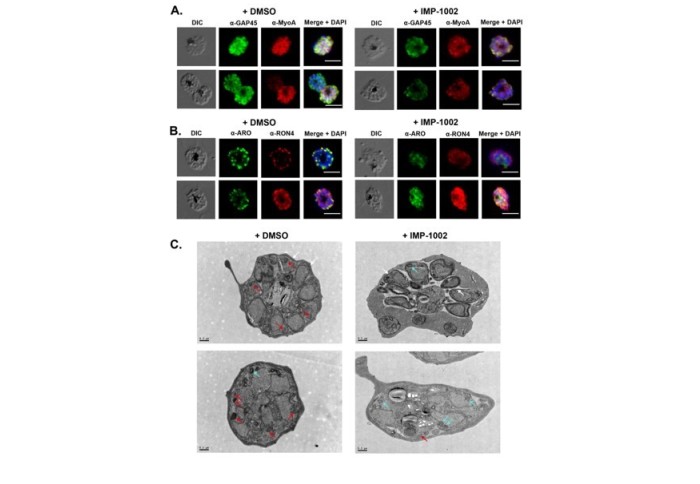Blocking protein N-myristoylation in Plasmodium falciparum

Congratulations to former joint Imperial/Crick student Dr Anja Schlott on publishing PhD research
Anja’s collaborative PhD project with Anthony Holder, published in PLOS Biology, combined chemical biology and genetic modification approaches to investigate the importance of protein N-myristoylation transferase (NMT) in the human malaria parasite Plasmodium falciparum (P. falciparum). Studies were conducted on parasites treated with IMP-1002, an inhibitor of NMT, in the last 10 to 15 hours of the erythrocytic cycle. The results revealed a significant blockade in parasite egress from the infected erythrocyte.
From this work, 16 NMT substrates were identified. All of these displayed significantly reduced N-myristoylation following N-myristoylation inhibitor treatment. A viability screen was then conducted on these proteins where replacement of the N-terminal glycine with alanine. This was done to prevent myristoylation and this revealed a substantial effect on parasite fitness.
Further research revealed that there are at least three mechanisms by which inhibition of NMT can disrupt parasite development and growth. These results underline the importance of P. falciparum NMT as a drug target because of the pleiotropic effect of its inhibition.
We would like to thank Cancer Research UK, the Department of Chemistry at Imperial College London, and The Francis Crick Institute for financial support.
Well done to everyone involved!
Article text (excluding photos or graphics) © Imperial College London.
Photos and graphics subject to third party copyright used with permission or © Imperial College London.
Reporter
Dr Ravi Singh
Department of Chemistry